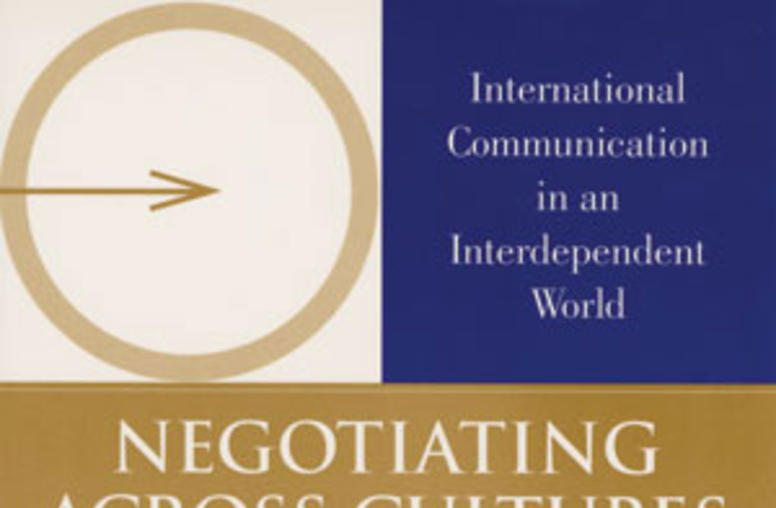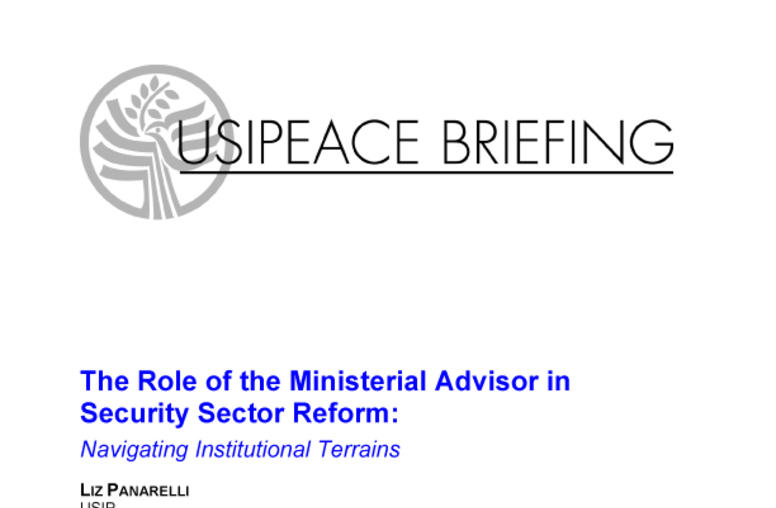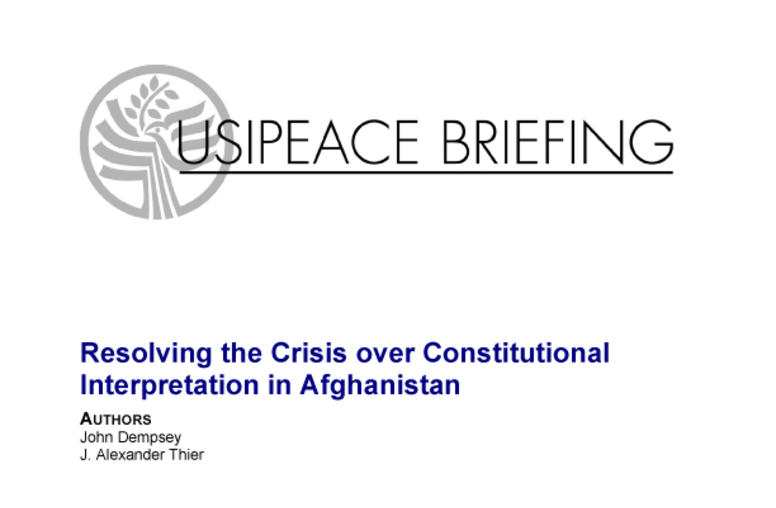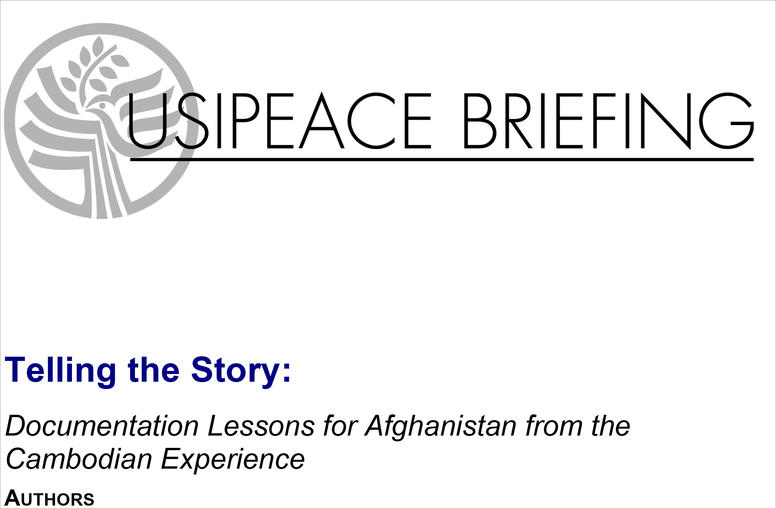Question And Answer
Publications
Articles, publications, books, tools and multimedia features from the U.S. Institute of Peace provide the latest news, analysis, research findings, practitioner guides and reports, all related to the conflict zones and issues that are at the center of the Institute’s work to prevent and reduce violent conflict.

Negotiating Across Cultures: International Communication in an Interdependent World
Over the last decade, USIP has produced a definitive series of books on culture and negotiating styles. Described as "profoundly useful," this series is essential reading for diplomats, trade negotiators, policymakers, business leaders, and students. Books have been produced on French, Russian, German, North Korean, Chinese, Japanese, Israeli, Palestinian, and Indian negotiating styles. American, Pakistan, and Iranian negotiating styles are currently under development. USIP also published ...
On the Issues: North Korea
The White House said North Korea had taken "a serious step in the wrong direction" when the regime expelled international inspectors from the country and announced it would restart its nuclear program. USIP’s John S. Park provides regional context to the latest developments.

The Role of the Ministerial Advisor in Security Sector Reform: Navigating Institutional Terrains
International actors in Security Sector Reform (SSR) are increasingly taking on roles as “advisors” to Ministries of Interior, Defense, and Justice. Rather than directly implement changes necessary for SSR, these advisors must persuasively articulate suggestions to their local counterparts. Advisors’ success depends on their ability to convey recommendations in a manner that makes change acceptable to their advisees.
Briefing on Human Rights in Afghanistan
Rule of Law Specialist Scott Worden testified on Capitol Hill on March 26, 2009 on the issue of "Human Rights in Afghanistan." A former adviser to the U.N. Assistance Mission in Afghanistan on human rights and elections issues, Worden helped the U.S. Helsinki Commission examine the current state of human rights in Afghanistan.

Resolving the Crisis over Constitutional Interpretation in Afghanistan
It is essential for political and legal stability in Afghanistan that the current inter-branch stalemate over constitutional dispute resolution be resolved. Any solution must include a determination of which entity will have jurisdiction to undertake constitutional interpretation and in which circumstances. Most importantly, the solution must be achieved through an Afghan-owned process of dialogue and compromise; otherwise the outcome is unlikely to be implemented.
Securing Afghanistan: Getting on Track
New USIP report, "Securing Afghanistan," strengthens case for urgent, sustainable reforms. This first-ever comprehensive analysis of international security assistance shows many donors have not met their Afghan commitments. A lack of focus on long-term sustainability, an inability to map the entirety of donor nations' security assistance programs and the subsequent failure on the part of the international community to understand precisely what is needed in Afghanistan are among the leading re...

Telling the Story: Documentation Lessons for Afghanistan from the Cambodian Experience
USIP recently co-sponsored a conference in Cambodia to highlight lessons learned about war crimes documentation for Afghan human rights practitioners. USIP's Scott Worden, who organized the event, reports that a broad range of documentation techniques from computer databases to memorials are available to tell victims' stories in a way that promotes healing and a greater understanding of the past.
The Next Chapter: The United States and Pakistan
On October 2, 2008, the USIP-cosponsored Pakistan Policy Working Group released a report with recommendations to the next administration as it develops its strategic options relating to Pakistan. The recommendations are endorsed by Richard L. Armitage, former deputy secretary of state and Lee Hamilton, former U.S. representative and co-chair of the 9/11 Commission and the Iraq Study Group.
On the Issues: Philippines
In the Philippines, a peace agreement—eleven years in the making—between the government and the Moro Islamic Liberation Front is now in question because of a Supreme Court decision. Renewed violence has broken out. Eugene Martin, who directed USIP's Philippine Facilitation Project between 2003 and 2007, discusses the situation.
On the Issues: North Korea
Recent reports on the ill health of North Korean leader Kim Jong Il have renewed speculation over his succession and the country’s future, while chronic food shortages and stalled denuclearization activities complicate the situation. In this On the Issues, Senior Research Associate and North Korea specialist John S. Park explores these issues.